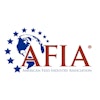
Biosecurity Vehicle Wash Manufacturer, Hydro-Chem Systems, is helping farmers across the country fight the spread of bird flu after the first cases of cow milk tested positive last week.
The United States poultry industry has struggled to combat the spread of the H1N5 virus since the 2014-2015 outbreak, which resulted in more than 51 million birds being culled. This most recent outbreak has been ongoing since 2022, with more than 85 million birds affected in nearly every state. While Highly Pathogenic Avian Influenza (HPAI) has been detected in mammals previously, the jump to multiple dairy herds across state lines has prompted farmers to look for a better solution to this potentially deadly virus.
Hydro-Chem Systems Automatic Wash Specialist, Keith Bailey, said he has already received calls from dairy farmers in the southwest in light of this news.
“Farmers are cautious right now, and rightfully so,” Bailey continued. “Given how many birds were culled over the years. The fact that it’s now in cattle, means farmers need to take preventative measures immediately. Without a proper biosecurity wash system, the virus will continue to spread from cow to cow, and farm to farm.”
Hydro-Chem Systems has been the leading manufacturer of biosecurity washes since the 2014 outbreak, installing dozens of systems across more than 15 states. Each system can run more than 150 cycles a day and depending on the set-up, a cycle can be a full wash, partial wash, or sanitizer only.
Vehicles are covered completely, from the tops and sides to the undercarriage, using an EPA-approved sanitizer before being able to access the facility, reducing the chance of any outside contamination. During the biosecurity wash process, vehicles are moved through a single entry point and out through a single exit point. This ensures that any person or vehicle that passes through will be cleaned and sanitized before entering.
Recently, Hydro-Chem Systems has been working with Iowa State University to help develop effective biosecurity training for farmers to combat the spread of bird flu. Bailey said proper vehicle care is crucial to this plan.
“Last year, one of the largest egg producers in the United States reached out after seeing our biosecurity system at a location they had recently acquired,” Bailey said. “They wanted to put a new system at a different site, but before they were able to complete the building to house the equipment, their farm was hit by bird flu. Over a million birds were affected at that facility.”
“They have recently ordered additional systems for multiple locations — because no one is immune to this,” Bailey continued. “While it’s not completely preventable, they know reducing the spread through vehicle sanitizing is another layer in the process to protect our producers and their farms.”
Bird flu has been spreading around the world for almost 30 years, infecting millions of birds and other animals. It has also claimed the lives of about 460 people, according to the World Health Organization. Last week, a Texas resident was infected with bird flu after coming in contact with cows and suffered mild symptoms.
Already this month, the virus had been detected in an egg facility in Ionia, Michigan according to the USDA, as well as locations in Texas and South Dakota. Earlier this week, the American Association of Bovine Practitioners sent out a request to update the term used to describe this virus in cattle, changing it to bovine influenza A virus, or BIAV, to “better distinguish the disease syndrome in cattle from the pathogenesis in birds.” They are encouraging everyone to do the same.
As more birds continue to migrate back north this spring, it is essential that every farmer and producer, not just poultry and dairy, take the necessary precautions to slow the spread of viruses and germs.















